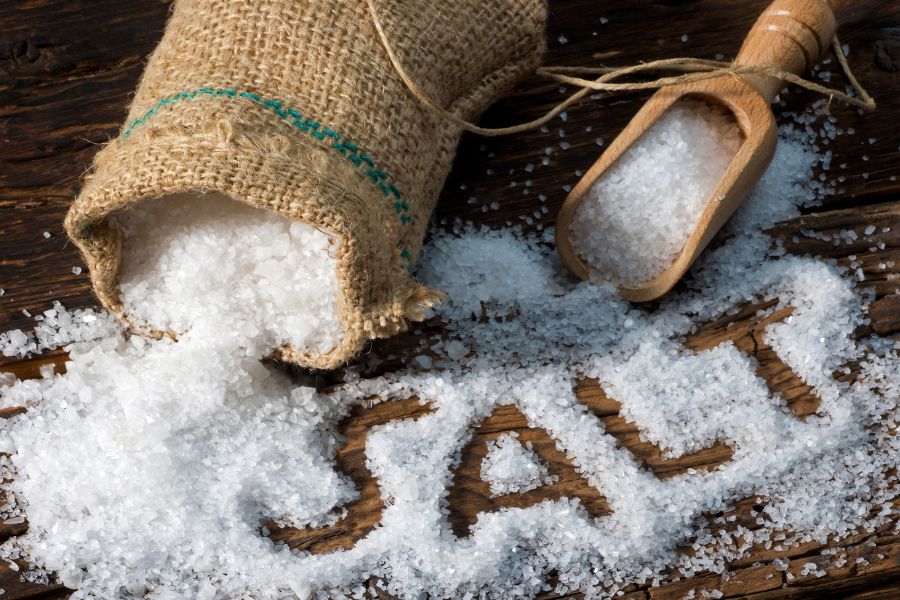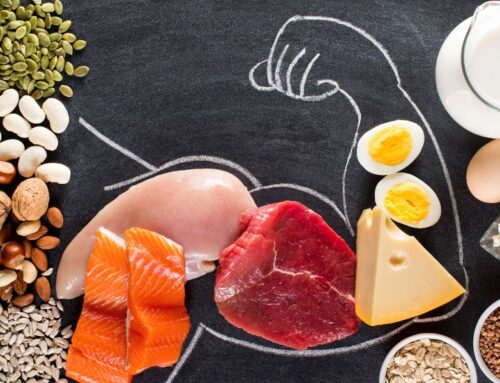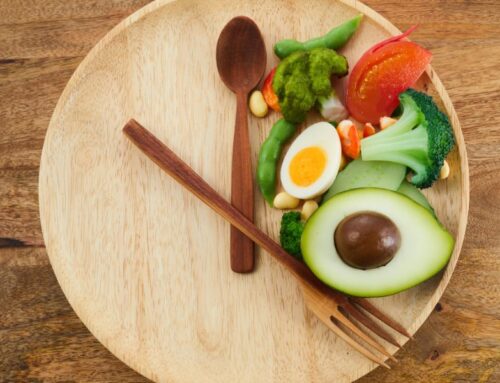November 15, 2024
Skip the Salt-Shaming: Why Cutting Salt May Be Counterproductive For Your Metabolism
At WellCentric Health, we’re all about cutting out the junk — processed foods, refined sugars, and unhealthy fats. If you’re already avoiding processed foods, the whole “cut down your salt” mantra might not be doing you any favors. In fact, trying to restrict salt too much could be throwing a wrench into your metabolism and sabotaging your ability to maintain a healthy weight.
Let’s dive into the salty truth and why we don’t believe in salt-shaming when you’re eating real, whole foods.
The Problem with Processed Foods and Hidden Sodium
First, let’s clear the air: Processed foods are the real culprit when it comes to sodium overload. Pre-packaged meals, fast foods, and even those seemingly innocent condiments can contain astronomical amounts of salt, and when you’re eating that stuff on the regular, yes, your salt intake can spiral out of control. Excess sodium from these sources has been linked to issues like high blood pressure and cardiovascular problems.
But here’s the twist — when you eliminate or greatly reduce processed foods, you’re already avoiding a huge chunk of unnecessary sodium. The whole “eat less salt” message is designed for people who are relying heavily on these unhealthy, sodium-laden foods. If you’re eating whole, minimally processed foods — like the diet we advocate at WellCentric Health — the sodium equation changes significantly.
What Happens When You Cut Salt Too Much?
Once you’re eating a nutrient-dense, whole foods-based diet, salt restriction can backfire. Your body needs sodium, and it’s a lot more than just a seasoning on your favorite dish — sodium plays a vital role in regulating blood pressure, fluid balance, and nerve function. Plus, believe it or not, skimping on salt can throw off your metabolism, particularly when it comes to insulin, fat storage, and fat breakdown.
Here’s why cutting out salt could be messing with your metabolic mojo:
- Worsened Insulin Resistance: When you drastically reduce sodium, it activates your body’s stress response — hello, renin-angiotensin-aldosterone system (RAAS)! This fancy-sounding system kicks into gear to help your body hold on to sodium, but it comes with a price: increased insulin resistance. That means your body struggles to use insulin effectively, making it harder to regulate blood sugar and leading to fat storage instead of fat burning. Think of insulin resistance as a sneaky culprit that helps those extra pounds creep on. Less salt = more fat? Kind of feels unfair, right?
- Fat Storage Overdrive: The RAAS system also ramps up hormones like aldosterone and angiotensin, which are known to promote fat storage, especially around your belly. So while you’re trying to be “heart healthy” by cutting down on salt, your body’s fat cells are getting the wrong memo and setting up shop. Picture your fat cells as little hoarders — when you skimp on sodium, they get nervous and start storing every bit of fat they can find.
- Inhibited Fat Breakdown: Not only does restricting salt promote fat storage, it also stops your body from breaking down fat effectively. In simple terms, your body holds onto fat like it’s preparing for a long winter, making weight loss feel like an uphill battle. The biochemical processes that help burn fat (called lipolysis) don’t work as efficiently when you’re salt-deprived, and your metabolism slows down. So, your body is holding on to fat and refusing to burn it. Not a great combo!
Here’s Where It Gets Ironic:
In many cases, well-meaning people who are already on the road to better health — avoiding processed foods and eating clean — are the ones who get stuck in this salt-reduction trap. By cutting sodium too much, they end up with sluggish metabolisms, feeling fatigued, and frustrated by stubborn weight that won’t budge.
In the quest for a healthy lifestyle, they’ve accidentally fallen into the “salt is bad” pit, but there’s good news: You don’t have to stay there.
When Salt is Your Friend (and Not the Enemy)
At WellCentric Health, our approach emphasizes real food. You’re eating whole, grass-fed/finished meats, wild-caught fish, organic vegetables, and healthy fats. These foods are naturally low in sodium. If you’re cooking at home and not loading up on packaged junk, you’re not in danger of overdoing the salt.
In fact, adding salt to your meals when you’re eating whole foods is not just okay — it’s necessary. Your body needs sodium for vital processes like regulating blood pressure, maintaining proper fluid balance, and even for muscle function. Not getting enough salt can lead to fatigue, muscle cramps, and — you guessed it — a sluggish metabolism.
A little sprinkle of sea salt or Himalayan salt can actually support your metabolic health, help balance electrolytes, and keep your body running smoothly, especially if you’re active or following a low-carb or ketogenic diet.
Let’s Put the Salt Scare to Rest
So, should you throw out the salt shaker? No way. If you’re following a processed food-free diet, salt is your friend. It’s time to shake off (pun intended!) the salt phobia that’s been drilled into us for decades.
Avoiding processed foods is the foundation of what we do here at WellCentric Health because it addresses the root of so many health issues. By focusing on nutrient-dense, whole foods, you naturally keep sodium in check and allow your metabolism to function as it should — without the need for restrictive salt guidelines. And if you’re already following this type of diet, cutting salt might just be sabotaging your progress.
Lighten Up — and Enjoy Your Salt
Here’s the deal: Salt isn’t the villain when it’s part of a whole-foods diet. It’s the processed foods packed with hidden sodium, not the salt you add to your homemade meals, that cause problems. So, next time someone warns you about that pinch of salt on your roasted veggies, smile and think of it as a nutrient, not a no-no.
After all, what’s life — or food — without a little flavor?
At WellCentric Health, we recommend LMNT, an electrolyte supplement that many of our patients find as an enjoyable and helpful for replenishing essential minerals like sodium, potassium, and magnesium, particularly for those following whole foods or ketogenic diets.






